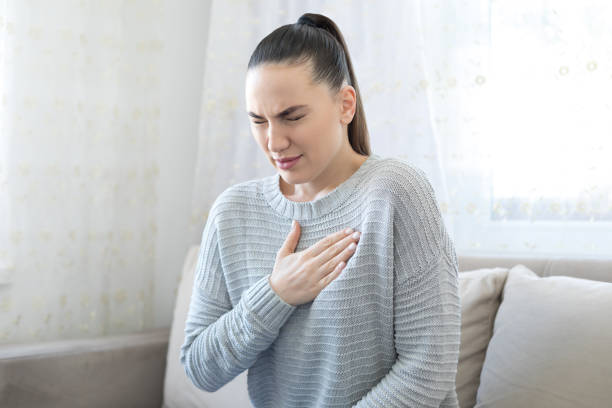
Taking care of your heart is crucial, and it’s something that we should all be striving to do. Heart disease is extremely common, but it can be preventable. A common type of heart valve disease is mitral valve regurgitation, and this is when the valves in the left chamber of the heart don’t close properly which leads to blood leaking back out. Heart attacks are one of the main causes of this as they damage the area of your heart that supports the mitral valve. Heart attacks themselves can happen to anyone, but luckily, they don’t always cause death. Catching them early is the best thing you can do, so keep reading and find out more about the symptoms of a heart attack.
Chest Pain Or Discomfort
One of the most common symptoms of a heart attack is chest pain or discomfort. We see it all the time in movies, people clutching their chest as they sink to the floor. But although these dramatized versions may not be 100% accurate, chest pain or discomfort is something you should never ignore. Generally, heart attacks cause you to feel some mild pain in the centre of your chest. It could also feel like a tightness, a pulling, and even a feeling of fullness. This is why it’s important that you pay attention to any pain you feel in your chest, no matter how small it may be.
Pain In Other Parts Of Your Body
As well as pain in your chest, you may feel it in other parts of your body too. It’s very common for you to feel discomfort in one or both of your arms, in your jaw, and even your neck, back, and stomach. Some people feel shooting pains or cramps in the arms, and others may experience pressure on their back. No two heart attacks are the same. A heart attack won’t just cause pain at its source, so you need to be aware of the sensations happening in the rest of your body too.
Difficulty Breathing
Another common symptom of a heart attack is difficulty breathing or a shortness of breath. That isn’t to say that every time you’re going to the gym, you’re having a heart attack. But say you walked from one room to the other and suddenly felt like you’d ran 10 miles, then this could be a sign of one. You may also start to feel dizzy and like you might faint, so always make sure that you’re careful and contact the emergency services in this situation. If you find that certain tasks have now become difficult and make you out of breath when they didn’t before, you should speak to your doctor as this could be a sign that things aren’t quite right.
Coughing And Nausea
A relatively overlooked symptom of a heart attack is coughing or wheezing. If this suddenly comes on and you’re worried, always speak to a medical professional so they can check you over. Some people also experience nausea and vomiting while experiencing a heart attack. While you may just have a virus, it could be signalling to something more severe, so always ensure that you’re ready to call the emergency services if you start to feel these symptoms.
Cold Sweats
People will often wake up in a cold sweat when they’re unwell or even just have a bad dream. But in actual fact, cold sweats can be a sign of an impending heart attack. If you start to sweat excessively, then speak to the emergency services so they can check your heart. It might just be a fever or something similar, but as it’s a sign of a heart attack, it’s always best not to overlook it.
If you experience any of these symptoms or are worried that you’re experiencing a heart attack, call the emergency services right away. It’s better to be wrong than to ignore it and potentially pass away.
Heart attacks can come out of the blue and affect anyone, so being aware of the symptoms of one can be lifesaving. Make sure that while you’re waiting for the ambulance, you follow the dispatchers guidelines properly. You don’t want to put any unnecessary strain on your heart and will need to wait patiently and carefully until help arrives. So, if you ever experience any symptoms of a heart attack, no matter how small, speak to medical professionals immediately.
